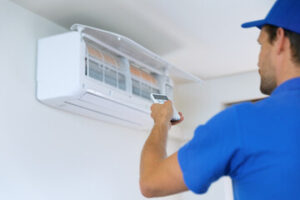Preventing pests involves removing food, water and shelter. For example, keep trash cans emptied and remove scraps promptly, as these attract pests. Clean drains regularly to prevent flies and other pests from breeding.

Natural enemies — parasites, predators and pathogens — help control pest populations. Juvenile hormones also reduce pest numbers by keeping immature insects from maturing into normal adults. Reach out Pest Control Nampa for comprehensive assistance.
Proper identification of a pest is the first step in developing an effective pest control program. It provides important information such as the time of year the pest is most active and the physical forms it will assume as it goes through its life cycle. It also determines what factors are most likely to favor the development of the pest and identifies specific procedures that can be used to prevent or manage the pest without injuring beneficial organisms or causing unnecessary injury to plants.
For example, an immature beetle that looks like a caterpillar or worm may actually be a beneficial insect. On the other hand, a cockroach infestation is not a good thing to ignore since it can carry diseases that can affect humans and pets. When a problem is identified, it can be managed through sanitary measures, pesticides or baits.
To properly identify a pest, look at it carefully and note the characteristics such as shape, size, color, number of legs or wings, and whether it has antennae. Then compare these traits to pictures of different pests in an online or printed pest guide. Choose the one that most closely matches the pest you have observed. Then, read more about that pest to learn more about its habits, environment, threats, and prevention and control measures.
In some cases, precise pest identification requires a visit to a professional or the shipment of a specimen for testing. However, the ability to accurately identify a pest is a critical step in practicing Integrated Pest Management, so it is well worth the effort.
Another way to help with identification is to inspect a house or business regularly for pest entry points such as doors, vents, cracks in walls and windows. Also, examine outdoor areas such as gardens and lawns, compost piles, and debris such as wood or leaf litter. This will help you to identify pests before they become a major nuisance. It will also help you to prevent the spread of a pest infestation from one area of your property to other areas.
Prevention
The goal of pest control is usually prevention and suppression, rather than eradication. In outdoor settings, eradication is rare, because the actions of one species typically affect the actions and well-being of many other organisms in the area (including the pest itself). Eradicating pests is more common in enclosed areas such as dwellings, schools, offices, health care, food processing, and storage facilities.
Preventing pests is often more effective and less expensive than controlling established infestations. It involves keeping the environment as clean and unfavourable to pests as possible, by removing food sources, shelter, and water, as well as blocking access to these. It also includes sanitation: removing crumbs and spills, fixing leaky plumbing, and securing trash cans.
Other preventive measures include monitoring pest populations to see how much damage they are doing and what environmental conditions favour them. This information helps to decide whether their presence is tolerable or requires intervention and what control measures should be used. Monitoring may involve such techniques as sticky traps, pheromone traps, and insect cards. It may also involve the use of cultural practices such as intercropping or planting trap crops to lure pests away from harvest crops and thereby reduce their damaging impact.
Several pests can be controlled using biological methods such as the release of natural enemies or parasites to kill or deter them, and methods that change the pest’s biology, such as selective breeding or introduction of juvenile hormones to disrupt the insect life cycle. These approaches are usually less expensive and more environmentally friendly than chemical controls, but they may take longer to be effective.
A good pest control strategy should balance the costs and benefits of preventing and controlling pests. It should cause the least harm to everything except the pest, and be based on a thorough understanding of the pest’s biology, ecology, and behaviour. This will help to ensure that any action taken does not jeopardise the safety of people, pets, livestock, and the environment. It should also comply with all relevant local, State, and Federal laws and regulations. The use of chemical pesticides should be restricted to situations where preventive and non-chemical methods are ineffective or unacceptable.
Suppression
Pest control techniques fall into one of three categories: prevention, suppression and eradication. Preventive measures are economical and environmentally responsible ways of reducing conditions that promote pest infestation. They include frequently cleaning areas where pests are likely to live, removing attracting materials, and altering the environment to make it unsuitable for pests. These methods can include physical traps and barriers for rodents and birds, and planting species that are naturally resistant to particular pests.
Pesticides are most effective when they are used quickly and sparingly to suppress a developing infestation. They should be selected based on their impact on non-target organisms, including beneficial insects and animals, and the environment. They should be applied in a manner that minimizes the likelihood of exposure, such as baits or traps rather than sprays. They should also be used at the lowest possible concentration to achieve the desired effect, such as a drench or fogging.
Suppression is a necessary step in the process of managing pests, but it should be considered a last resort. Insects and other pests can cause serious harm to crops, forests, homes, and public and private buildings. When they are present in large numbers, it is generally a good idea to take action to reduce their population to an acceptable level.
Threshold-based decision-making involves scouting and monitoring pest populations to identify the number of pests and their damage, and then using the information to decide whether or not to manage them. For example, a few wasps visiting your garden now and then may not warrant any action. But if you are seeing them every day and they are building nests, it may be time to use traps.
Natural forces that influence pest populations include weather, natural enemies, the availability of food and water, and geographic features. Many of these factors are beyond human control, but you can reduce the chance of pest problems by keeping areas as clean as possible, removing sources of food and water, and creating barriers that prevent pests from entering. Choosing plants that are naturally resistant to particular pests and introducing sterile males into a pest population to produce infertile eggs are other options.
Eradication
Pests must be controlled to prevent them from spreading or causing damage. This will usually involve bringing their population below an acceptable threshold (e.g., the level at which additional pest control costs would no longer outweigh the benefits). Eradication is difficult and expensive because of the need to eliminate all spores, eggs, larvae, or adults in the affected area, as well as to ensure that all vectors and intermediary hosts are eliminated. In addition, the eradication process must be sustainable, which requires a thorough understanding of the ecological systems that govern disease ecology and the interaction between microbes, their vectors, and humans.
Often, organisms rise to pest status by escaping normal control by natural regulating agents. This may be due to direct introduction into a new environment or to human activities that reduce the efficiency of these agents. The organisms may then rapidly achieve population levels that cause damage (e.g., locust swarms stripping landscapes bare) and therefore be considered a pest.
When natural control mechanisms cannot keep pest numbers below an acceptable threshold, chemical methods of pest control can be used. These chemicals can be broad-spectrum or narrow-spectrum, and can be organic or inorganic. They can also take the form of powders, granules, liquids, or sprays. They can be used to kill the pest directly or to affect the behavior of pests, such as releasing nerve toxins to paralyze the pest or releasing pheromones to interfere with breeding. Chemical pesticides can be toxic to non-target organisms, such as the pest’s natural enemies, and can persist in the environment, affecting water quality, soil productivity, and air quality.
Before using any pesticides, it is important to read the label carefully and follow all instructions for use. It is also a good idea to use them only when necessary, and when they will be effective against the pests you are targeting. If possible, avoid using any chemical pesticides on crops that will be eaten or touched by people. Also, make sure to use the least volatile chemical treatments and always try to apply them in ways that will minimize the risk of exposure to people and pets.

